7
March
National Archives of Australia
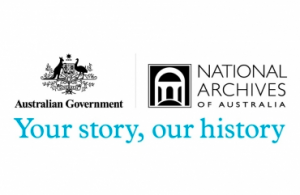
The National Archives of Australia can best be described as the memory of our nation – collecting and preserving Australian Government records that reflect our history and identity.. So what can the National Archives of Australia offer you? .
Collection
The collection at the National Archives of Australia is a historical look at the time of colonisation until more recent times. In regards to the collection, many of the more recent documents are still closed to public access. The archives may hold the item but until it has been examined it will not be made available, although you may be able to request for it to be examined for a fee. The collection includes: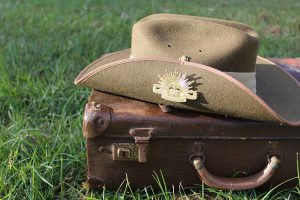 Defence Forces Personnel Records
Defence Forces Personnel Records
- Army Personal Records
- Boer War
- WWI
- WWII
- Pre-WWI, Inter war, Post WWII
- Air Force Personnel Records
- Navy Personnel Records
- Army Personal Records
- Other defence records
- Service pay records
- RAAF accident reports
- Australian POW records
- Court-martial records
- Repatriation cases (Boer War and WWI)
- War gratuity records
- Civilian service records
- Army Inventions Directorate
- Papua New Guine evacuees records
- Immigration and naturalisation records
- Passenger arrival records
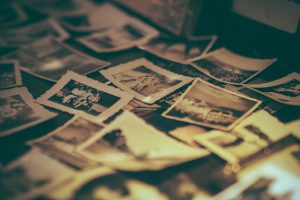 Other records
Other records
- Security and intelligence records
- Arts and science records
- Australian Broadcasting Commission
- Commonwealth Literary Fund
- Copyright, patents, trademarks
- High Court cases
- Photographs
- What's in the collection - Chinese Australians, Postwar Migration, Lighthouse Drawings, Snowy Mountains Hydro-Electric Scheme, Sinking of the HMAS Sydney, Wartime internment camps, and much more.
Record search
The search feature is great - you can do a basic, advanced, name, photo, or passenger arrivals search. Let's see how it works for your family history. .Family History
Now how does this pertain to family history? Anytime your ancestor had a connection with the government there was a record created - migration, naturalisation, service in the armed forces, voting, registering a trademark, working for the government. The collection has these and so much more. Check out their Researching your family page which contains guides to searching the archives for your ancestors. .Let's look at a couple of examples from my family tree that you can easily replicate for your tree.
.Basic Search
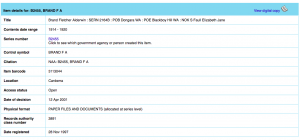
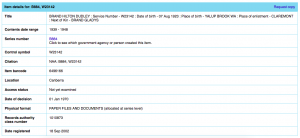
Name Search

Photo Search

Passenger Arrivals Search
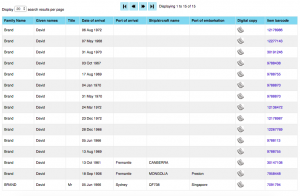
Locations
The beauty of the National Archives of Australia is, whilst their National Office is based in Canberra, they have an office in every capital of Australia. Whilst each state will have different holdings, and not necessarily the documents you want, a trip to the archives is a great experience. Some of these National Archives are colocated with the relevant State Archives. .National Office – Canberra
Address: National Office, Kings Avenue, Parkes ACT 2600 Tel: (02) 6212 3600 Opening Hours: 9am to 5pm Weekdays (excluding Public Holidays) Good to know before your visit:- Records need to be ordered before 12pm for next day availability.
- As Canberra is the capital of Australia the record collection is vast including Cabinet, Federation, Prime Minister and other Government records, WWI and WWII service records, naturalisation and immigration records, trademarks and copyright records, as well as a vast photograph collection.
New South Wales – Sydney
Address: 120 Miller Road, Chester Hill Tel: (02) 9782 4900 Fax: (02) 9782 4999 Opening Hours: 9am to 4.30pm Wednesday, Thursday and Friday (excluding Public Holidays)[/one_half] Good to know before your visit:- No records will be retrieved after 3.30pm.
- Sydney has records dating back as far 1804 with a Deed of Title for Pitts Row. There are also, post office records, customs, army, and navy establishments, and Government House records.
Northern Territory – Darwin
Address: Kelsey Crescent, Millner Co-located with Northern Territory Archives Service Tel: (08) 8999 6890 Fax: (08) 8999 6905 Opening Hours: 9am to 4.30pm Tuesday to Friday (excluding Public Holidays)[/one_half]Good to know before your visit:
- Their collection spans 170 years of Northern Territory history including Commonwealth and Northern Territory Government records, community and personal archives, WWII records documenting the evacuation of civilians, European settlement and the administration of welfare for Aboriginal people from the 1920's onwards, and a vast oral history collection.
Queensland - Brisbane
Address: 16 Corporate Drive, Cannon Hill Co-located with the State Records of South Australia Tel: (07) 3249 4200 Fax: (07) 3249 4299 Opening Hours: 9am to 4.30pm Wednesday, Thursday and Friday (excluding Public Holidays)Good to know before your visit:
- Records are only retrieved on a Monday so if you are planning a trip you need to pre-order any records you wish to view. Check out their online catalogue and submit a request in advance.
- Holdings include a small collection that includes 19th-century colonial records, immigration, and defence in the 20th-century.

 Check out their Social Media accounts.
Check out their Social Media accounts.
it is amazing to think how much information our governments are collecting on us.
Australia has got a much more sordid past than most people would appreciate on face value so it is no wonder that the records are not made public until they are examined.
Government records are a vital link to our past which we can’t afford to lose.
cheers.
Hi Remy
The government certainly does have a lot of information on us! I am so grateful that Australia has some of these great repositories that we can search to find original documents.
Regards,
Megan
Some good information to have especially if you have ancestors from there. All my ancestors as far as I know are from the US. And I only know back as far as my great grandmother. Never knew my great grandfather on either side. Does it cost to retrieve this records?
Hi Fred
Thank you for taking the time to comment. Some of the resources are available free on their website, others do require a payment. It is normally a case of identifying the record you want and ascertaining from there whether it is free or not.
Regards
Megan
This is a great service to people!!! I’m Turkish and in Turkey our govermental system started to offer services like family root tree display and etc… But this is a different concept and I think it’s necessary for someone to know their history in order take example from their ancestors.
History of Australia is pretty interesting actually. The old tribal effects and the social balances of them are worth evaluating.
Hi Tyler
We are very lucky in Australia that the Government has seen the value in opening up the old records of the country. We do have a very interesting history even though it is only a very short one compared to Turkish standards.
Regards,
Megan